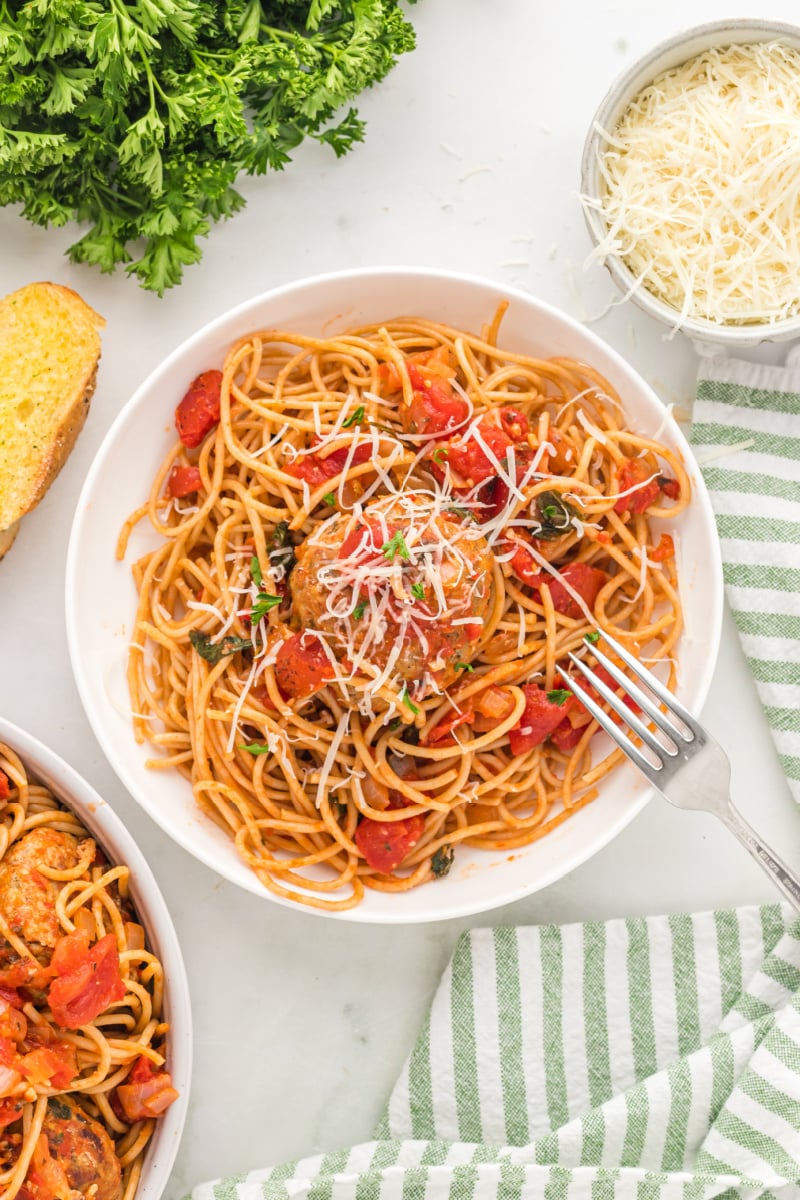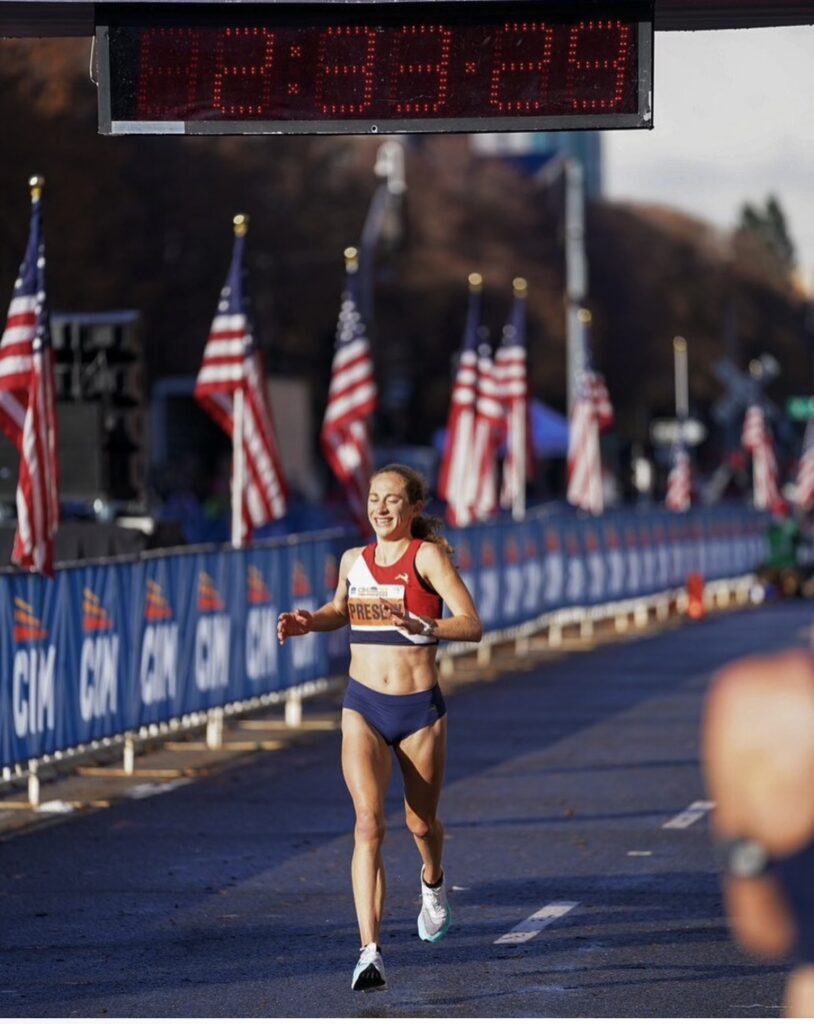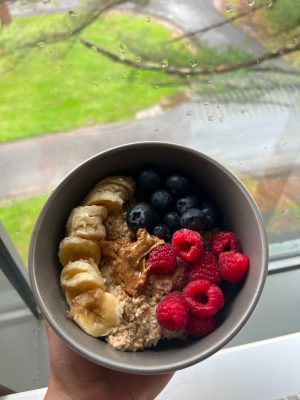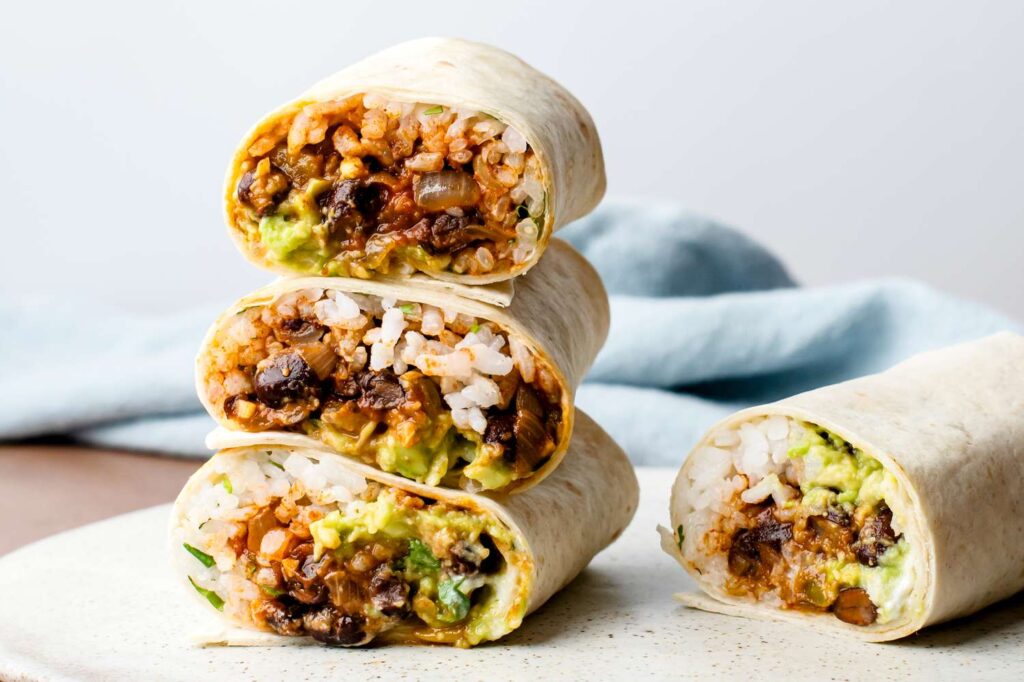Amy Stephens
MS, RDN, CSSD, CEDS
Licensed dietitian
specializing in sports nutrition
and eating disorders
MS, RDN, CSSD, CEDS
Licensed dietitian
specializing in sports nutrition
and eating disorders
Plan, Prepare, and Prioritize Your Nutrition
Especially during taper week, it’s crucial to stay organized and mindful of your diet, particularly if you’re balancing a busy schedule. Even though we’re running less in the taper, nutrition is just as important as our bodies absorb all the training we’ve put in during our training cycle.
The Importance of a Successful Carbohydrate Loading
A well-executed taper can improve performance by 2-3% (as noted by Hawley), but it may also cause anxiety as you decrease your workload and question your readiness. Workouts get shorter, and hunger levels fluctuate, leading to self-doubt. However, trust the process—this reduction in intensity helps your muscles recover and adapt, restoring glycogen to maximum capacity. The greater the amount of glycogen present in your body, the greater your body’s capacity to run faster for a longer period. Fully stocked glycogen stores can significantly enhance your ability to endure the 26.2-mile journey and potentially boost your performance.


As I tapered for my first marathon, focusing on carbohydrates was key. I relied on foods like bagels, oatmeal, pasta, dried fruits, and sports drinks in the week leading up to race day. When I hit the 20-mile mark and still felt strong, I knew my fueling strategy had worked, helping me finish with an Olympic Trials qualifying time.
– Katy Kunc, Professional runner and Olympic Trials Qualifier 2022
Photo: IG @runninphotog
What is carbohydrate loading?
Carbohydrate loading represents the final phase of your marathon training plan. Over the course of a marathon training cycle, you train your body to adapt to running longer distances. Those longer distances are fueled by glucose from carbohydrates, which your body breaks down to provide energy to your working muscles. This glucose is stored within the body as glycogen and serves as the primary fuel source during a marathon and especially during the last few miles of your race. Achieving effective carbohydrate loading involves consuming ample carbohydrate-rich meals in the days leading up to your race to ensure your glycogen stores are at their maximum capacity. This requires careful attention to meal planning and food preparation as the race day approaches. This can be anxiety producing, especially as you must continue eating while logging fewer miles.

What are the benefits of carbohydrate loading?
Carbohydrate loading allows the body to maximize adaptations, fully restore glycogen levels, and boost overall performance. By prioritizing these factors, athletes can enhance their endurance, ensure glycogen stores are at their highest, and effectively power through the final 10k of a 26.2-mile marathon. It is normal to gain weight during this period of the training cycle. Change in weight when carb loading:
What should you eat during race week?

Race week meal ideas:

Breakfast
Eggs with potatoes and toast
Granola bowl with fruit and yogurt
Smoothie – recipes
Toast with peanut butter and banana
Frozen waffles with fruit and syrup
French toast and side of yogurt
Oatmeal with nut butter and fruit
Baked banana oats with fruit
Toast with avocado and hemp seeds
Cinnamon raisin bagel with almond butter or peanut butter
Lunch
Wrap with hummus or turkey
Quesadilla
Burrito bowl
Smoothie and bagel
Pasta with protein
Rice bowl with protein and vegetables
Snack ideas
Bars – cliff, kind, Rx
Toast with peanut butter and banana
Toast with nutella
Crackers with peanut butter
Yogurt with fruit
Tortilla chips with hummus
Rice cake with peanut butter and banana
Trail mix
Fruit or dried fruit
Popcorn
Energy bites – recipes
Dinner
Grilled salmon or chicken with baked potato + fruit
Sushi
Pasta
Rice and beans
Burrito
Burger (veggie, beef, turkey) on bun with baked potato
Stuffed baked potato (white or sweet potato) topped with yogurt

How do you eat if you’re traveling for a race?
When traveling for the marathon, pack these essentials:
Book dinner reservations in advance, aiming for places that offer pasta, rice, or potatoes, like Italian, Chinese, or American bistro-style restaurants. A solid meal the night before the marathon can significantly impact your performance.
What should you eat the night before a marathon?
Early Dinner
Pasta, rice, potatoes, bread with protein
Bedtime Snack
Salty crackers like pretzels or saltines
What should you eat on race day?
3- 4 Hours Before Race
Have a carb-rich meal with some protein, such as a bagel with peanut butter and a banana, or oatmeal with fruit.
2-3 Hours Before
Consume a smaller meal (~100g carbs), like a bagel and banana or a Cliff bar with fruit.
1 Hour Before
A small snack like a piece of fruit or a Honey Stinger waffle.
15 Minutes Before (optional)
Take a gel, chew, or liquid carb source.
Trust in your preparation, nutrition, and tapering process—these final adjustments will help you feel strong and ready on race day.
By following these guidelines for carbohydrate loading and tapering, you can optimize your nutrition and readiness for marathon day. Have a great race!
References
Fernández-Elías VE, Ortega JF, Nelson RK, Mora-Rodriguez R. Relationship between muscle water and glycogen recovery after prolonged exercise in the heat in humans. Eur J Appl Physiol. 2015 Sep;115(9):1919-26. doi: 10.1007/s00421-015-3175-z. Epub 2015 Apr 25. PMID: 25911631.
Hawley JA, Schabort EJ, Noakes TD, Dennis SC. Carbohydrate-loading and exercise performance. An update. Sports Med. 1997 Aug;24(2):73-81. doi: 10.2165/00007256-199724020-00001. PMID: 9291549.
Sherman WM, Costill DL, Fink WJ,Miller JM. Effect of exercise-diet manipulation on muscle glycogen and its subsequent utilization during performance. Int J Sports Med 1981;2(2):114-8.
Stellingwerff T, Cox GR. Systematic review: Carbohydrate supplementation on exercise performance or capacity of varying durations. Appl Physiol Nutr Metab. 2014 Sep;39(9):998-1011. doi: 10.1139/apnm-2014-0027. Epub 2014 Mar 25. PMID: 24951297.
Stellingwerf T. Case study: Nutrition and training periodization in three elite marathon runners. Int J Sport Nutr Exerc Metab. 2012 Oct;22(5):392-400. doi: 10.1123/ijsnem.22.5.392. PMID: 23011657.
Licensed dietiTian
specializing in sports nutrition and eating disorders
© Amy Stephens Nutrition
SITE BY 744 CREATIVE